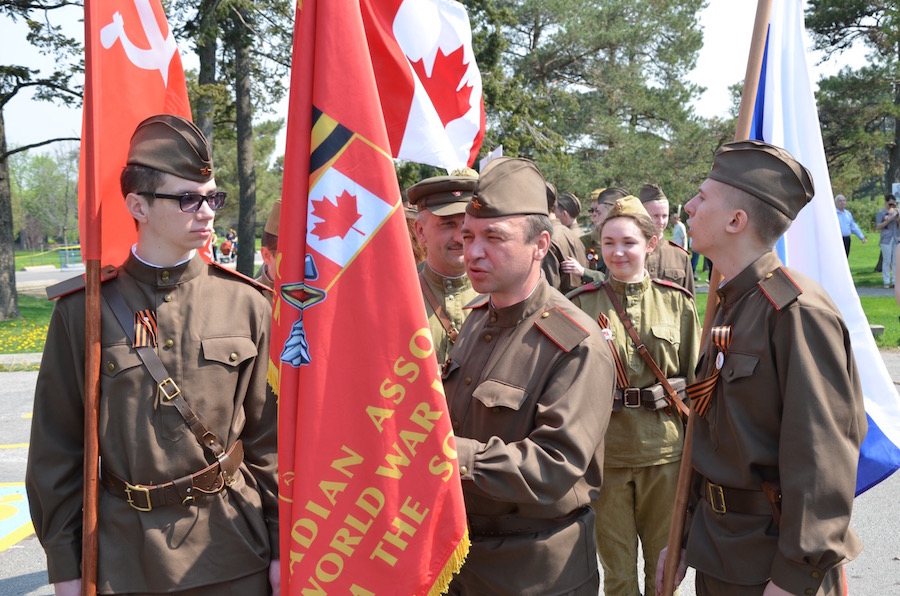It was expected that elderly veterans of WWII, chests festooned with medals, would participate. But in the park, on parade was a company-sized unit of young men attired in Red Army uniforms, exactly the same for all who wore them – knee-high leather boot, caps, jodhpurs, tunic, belt etc. – the full complement worn during WWII. It's impossible that so many families would bring with them to Canada and retain exactly the same complement of military clothing items. The explanation was offered by a store owner, “The word in the neighbourhood is that the Russian embassy was the silent partner in the celebration supplying whatever was necessary for a good party”.
No one denies the USSR's role in defeating Nazi Germany. Neither do Westerners belittle the casualties suffered. However one must note that Russian sources, in describing the sacrifice made by Soviet soldiers and civilians, never mention the contribution to the Soviet effort by Western countries. The USA alone provided over $158 billion in war materials – 25% in munitions and 75% in industrial equipment, raw materials and food – to the USSR between 1941 and 1945. Seventy eight convoys, of thousands of vessels made the hazardous route to northern Soviet ports, losing 75 cargo ships and 16 naval vessels to German u-boats and bombers.
While peoples of Estonia, Latvia and Lithuania acknowledge that it was the Red Army's invasion that drove the occupying German forces from their homelands, they also sadly witnessed the immediate installation of a repressive totalitarian regime in their homelands. This was the beginning of nearly 50 years of brutal Soviet captivity.
That is why the communist red banner is equally as odious as the universally condemned Swastika. It is a deep insult to freedom loving people to have it decorate any gathering in a liberal, democratic society. One asks why the historic Russian tricolour wasn't the only flag of choice? Is Soviet nostalgia rooted in the Russians of Toronto? Is Vladimir Putin's Soviet manifest destiny highly valued by the Russian diaspora? Are Russians in the West ignorant of the hurt the communist flag is to millions of east and central Europeans?
Was the Toronto celebration a success for participants? Difficult to measure. But the ceremony hosted by Vladimir Putin in Moscow had its embarrassing moments. The Kremlin had sent invitations to 68 leaders of countries. Twenty seven attended but not all joined Putin at the Victory Parade. Angela Merkel arrived on May 10 and then only to place a wreath at grave of the unknown soldier. The president of the Czech Republic and the prime minister of Slovakia came on May 9 but did not attend the parade. However they convened for a private meeting. Ten years ago at the 60th anniversary affair practically all of the prominent world leaders were present with only Tony Blair missing. Now of the countries with any international clout just China's and India's heads of state were present.
Laas Leivat – EÜKN




